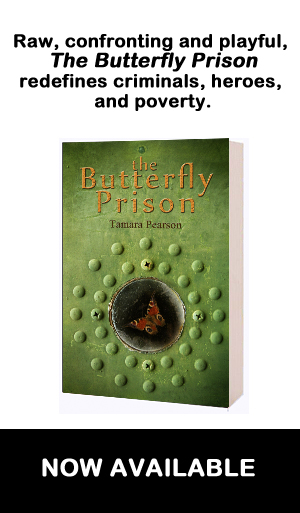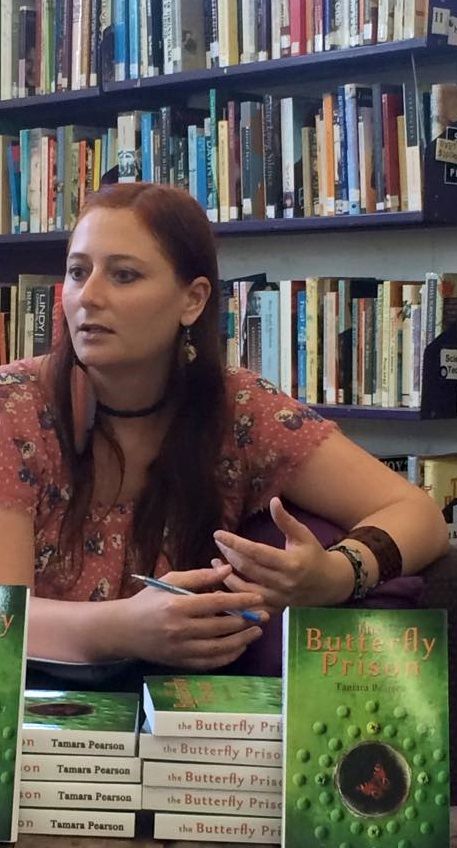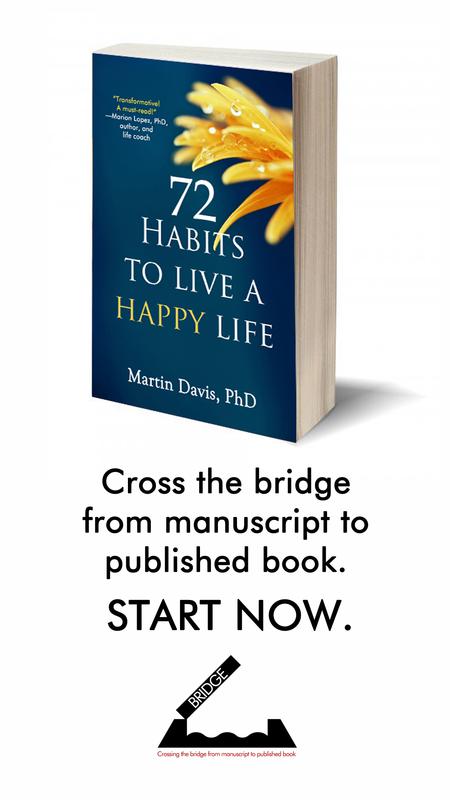Interview
Moronic Ox Talks with Author and Social Activist Tamara Pearson
MO:The Butterfly Prison takes place in Australia – the suburban slums of Sydney, to be more precise. Today we are speaking to you from your home in Mexico. Prior to living in Mexico, you also lived in Ecuador and in Venezuela. As a girl growing up in Australia, what were your experiences that a) motivated you to write The Butterfly Prison; b) migrate to South America?
Tamara Pearson: I was an unusual child, though most people were when you look closely enough. At thirteen I was upset about poverty, politician lies, and racism, and I wanted to talk more about that than what my friends were talking about. The suburb one of the main characters, Mella, lives in, is fairly similar to mine, and her experience working as a cashier is something I also went through when I was 15 or 16. But what really motivated me to write the book is just how bad the world is for most people, but how incredible human beings can be. We are all so diverse and complicated and courageous, despite the various social hardships we all deal with, and that offers some hope to me.
When I moved to Venezuela in 2007, the Bolivarian revolution was in full swing, and I thought I could learn from it. There was community organizing on a mass scale, free health care, and eventually free housing – and most importantly, the majority poor in Venezuela were starting to have a serious voice in politics – in the big national and local decisions that make a difference to their lives. I ended up staying.
MO: You have said that it took you ten years to write The Butterfly Prison. Why so long? And how did you sustain your passion for the writing for so many years?
Tamara Pearson: Partly it took so long, because like most writers, I was learning as I go, and I made a lot of mistakes at the start – whole sections were scrapped. The first few years I was also working full time, or studying full time and working part time, as well as activism – so that made it hard. But it was also that the novel involved a lot of research, and that I wanted to make every word count. Even though it's prose, I wanted it to be as well written and as rich as poetry. So I could spend a week brainstorming and working on a small vignette, getting it as concise and to the point as possible.
You know, I really think we should write things that we believe need to be written. The stealing of humanity, the corruption of beauty, were things that I thought needed to be written about and talked about and understood. Literature can help us imagine a new reality, it can give us the words and ideas to talk about it, and help us to name the social oppression that needs to be changed. I hoped to do that – contribute, in a tiny way to that.
MO: The Butterfly Prison exposes modern-day socio-economic and racial class separation not only in Australia, but throughout the so-called developed world. How have you personally experienced such class separation both in Australia and while living abroad? How have your personal experiences with this issue shaped the way you live – the way you work, play, interact with others?
Tamara Pearson: For Australian standards, my family was relatively poor. We were okay, but we rarely ate out, never went places for holidays, didn't have new clothes, that sort of thing. I think in many ways it was good – my mum encouraged me and my brother to play a lot as kids, but usually with old egg cartons or whatever, and that sort of thing encourages creativity and innovation, rather than a materialistic dependence on consumerism. But our house was old and friends from school would always insist I go to their place, rather than they come to mine. When there were dances or things like that, I didn't feel like I could go. I felt that the world of being beautiful wasn't a place I was part of, because it seemed fashion decided that. Writing The Butterfly Prison was very much about defining what beauty really is, and it's so much more wonderful than expensive clothes.
My life in Latin America, in terms of material standards, has been fairly similar. Living happily on the basics. Not being able to afford shoes, or to go out sometimes – but it doesn't seem to matter when life is so rich with culture, books, community organization, and incredible conversations. But you notice how the first world lives, and how many people in the first world seem to own so much stuff, so many gadgets, such big houses. Ultimately though, that isn't very important. What we need is for every single human being to be able to live in dignity – both material, and immaterial (where their opinion matters, where they aren't discriminated against or devalued).
MO: Without giving away key moments in the novel, it is fair to say that you envision first world exclusive societies as, shall we say, shredding machines for human dignity. Can you describe their mechanism, as you see it?
Tamara Pearson: Right, I guess that's what I was just getting to. Whether we have a lot of stuff, or not, most of our happiness in life comes down to our dignity: is what we do valued? Are our views valued? Is our sexual, class, and racial identity respected, or dehumanized? And then, materially – it is hard for about half the world's population to feel valued and dignified, when they are living in unstable housing, without decent food, health care, sanitation and so on. When society is geared to mass producing plastic waste (useless toys, gadgets, weapons, etc) rather than to human dignity: to protecting human life and fostering human creativity, it is understandable that there is what I call a “global low self-esteem”.
MO: In The Butterfly Prison the two main characters juxtapose one another: Mella begins the novel devoid of dignity and hope but transcends the barriers that her society has imposed upon her; Paz, on the other hand, is a dreamer, a visionary, creative and outgoing, but he is crushed by the system in which he is forced to live. Each character is thoroughly believable. What forces would you say enable one character to emerge whole (and even transcendent) whereas the other has all hope (and even his life) taken from him no matter his effort to remain positive and rise above his circumstances?
Tamara Pearson: I think a key thing that readers can look out for, when comparing Mella and Paz and what happens to them, is how the two characters respond differently to problems. How do they make decisions? Do they see their problems as isolated incidents, or as part of broader social issues? Do they face issues head on, or prefer the comfort of denial?
MO: As a thirty-something writer vitally interested in social issues, how do you see your generation 10 years from now? 20 years from now? 40 years from now? And, presuming medical science is able to extend life expectancy, 50 years from now?
Tamara Pearson: Haha, its perfectly possible I'll live to be 83 without medical science! But I guess the point is that as we get older many people tend to get a bit jaded, tired, and accepting of the world as it is. It also seems to be a thing that as people age and deepen their experience of the world, they gain a longer term perspective of history and social change and both understand how long change takes but also lose that sense of urgency.
MO: Do you plan to write other novels? If so, will they feature similar issues? What is your best hope for The Butterfly Prison and for your other nonfiction writing? Do you think your words are heard and understood? Do you think they affect others and make a difference in the way they view the world?
Tamara Pearson: I hope so – to all of that. I worry that people don't have time to read novels now. But at the same time, many of the people I talk to who now dedicate themselves in some way or another to social justice, were first inspired to by a novel. It takes a lot of many different kinds of things to change the world, and novels are just one of those.
I hope that The Butterfly Prison challenges people to question, be curious, redefine some things, that it inspires some people, and makes other readers angry. I hope it helps to make sense of complex world and that it brings to light some of the hidden injustices, the secret and silenced wrongdoings. And I hope it captures some beauty for people, the bits of life that are worth cherishing.
MO: With all the discord in the world today, some would simply want to hide out and try to survive as best they could. You throw yourself right into the big issues and give all your time and energy to trying to make a difference. Is there a limit to your energy? What sort of pay-back do you need to keep going?
Tamara Pearson: I can really understand the temptation to withdraw a bit. I've learned that when we try to change things for the better, we tend to put in a lot of effort, just to change a little. Yet if we do nothing, we change nothing. As the Russian poet, Vladamir Mayakovsky wrote – if we say nothing when a little injustice takes place, that injustice will eventually become bigger and stronger until we are no longer able to say anything. I have times when I do a lot less. When, because of work or whatever, my contribution is limited to just speaking out when something isn't okay, or to being supportive. But I can't bare to do nothing, to give up – for what is the point then of anything? The motto I write on my wall or in my diary, is that we honor the dead with a lifetime of struggle. We will have days when we are lazy, days when we're sad and down, but a lifetime dedicated to understanding the world and working with others to overcome the gross mass abuse, is the only sincere way to honor those who die at sea as they flee war or due to lack of basic medicine or at the hands of police, and so on.
MO: Can you tell us your grandest hopes for a cultural revolution – one in which all people are valued and included? What might such a society look like?
Tamara Pearson: I dream of a world where we celebrate our differences, our quirkiness, our weirdness. Where the many ways of being, the many types of sexuality, the different cultures – are cherished, and looked after. I imagine that world being a much more colorful and joyful place, more supportive, and less violent. But to include everyone, everyone has to be able to communicate – talk or write or have their say somehow. And that won't be possible while insane poverty still exists, and while opinion making is seen as basically the domain of rich white men.
MO: If you could address the United Nations, what would your primary message be to world leaders (provided they showed u If you could address the United Nations, what would your primary message be to world leaders (provided they showed up)?
Tamara Pearson: It's time they be judged and held accountable for their actions. This would include economic leaders – the heads of Monsanto and the like, who have a big influence on the world. Anyone who has that much influence, should, as a start, be responsible to those they affect with the economic decisions they make, the environment they destroy, the wars they declare (and those wars they don't bother to declare).
© Moronic Ox Literary Journal - Escape Media Publishers / Open Books
Moronic Ox Literary and Cultural Journal - Escape Media Publishers / Open Books Advertise your book, CD, or cause in the 'Ox'
Novel Excerpts, Short Stories, Poetry, Multimedia, Current Affairs, Book Reviews, Photo Essays, Visual Arts Submissions
Tamara Pearson is a writer, journalist, activist and teacher. Currently based in Mexico a, she has been a journalist for 14 years, working from Venezuela as a reporter and respected analyst, as well as for Green Left Weekly in Australia. She has also written for a range of other media in English and Spanish in Bolivia, Mexico, Pakistan, Zimbabwe, and more.
She campaigned for refugee rights and against the war in Iraq in Australia, and was involved in community organizing in Venezuela.
She also worked at an alternative school in Venezuela promoting creativity and imagination as tools for expression and empowerment.
Open Books published her debut novel, The Butterfly Prison, in Summer, 2015
About the Book...
The Butterfly Prison is a tapestry of vignettes that tells the hushed-up, little stories that unfold within a world characterized by diminishment and shame, the stories of the disenfranchised, the stories of Paz and Mella.
As each fights for dignity in the shadows of poverty, harassment and exploitation, their decisions tell a compelling story of choice, consequence, systematic injustice, and the inner magic of the human constitution.
Tender and thought provoking, unusual and rule-breaking, The Butterfly Prison bites and delights as it redefines our notions of beauty, freedom, heroes, criminals, and war.
What Others Are Saying About
The Butterfly Prison
"With unsettling metaphors and an intense narrative thread, Tamara Pearson
makes you work for it. But you'll be glad you did. This is a genuinely
original and tender insight into the forgotten lives and dreams that long
to break through the cracks in the paving stones of our broken
societies." – Iain Bruce, Film maker, journalist, and author of various non fiction books
including The Porto Alegre Alternative: Direct Democracy in Action
"In language that bounces and jabs like a prize fighter, Tamara Pearson has
given us a novel that mixes unforgettable stories with the
politics of power. Supremely readable and supremely insightful." –Greg
Palast, author of the New York Times bestsellers, Billionaires & Ballot
Bandits and The Best Democracy Money Can Buy
"Pearson’s writing is poetic, haunting, and acidic. In the Butterfly Prison,
she interweaves compelling characters with the much larger issues of war,
ecological collapse, and human suffering. The Butterfly Prison is a meditation on the
similarities and differences of the prisons that people are forced to live
in and the ways that they resist their imprisonment. This is a story about
the power of human creativity in the face of indifference and violence. It
is a reminder of the importance of imagination and creating new stories as
weapons against evil and self-annihilation." – Mai’a Williams,
co-editor of Revolutionary Mothering
"I loved this. Some of it made me want to turn the text into artwork. So
fucking beautiful and heart exploding!" – Margaret Allum, Green Left
Weekly
"This is a novel that talks about the hardest things, and in such an
engrossing way. The character Paz just blew me away." – Michael Fox,
co-director of documentary "Beyond Elections: Redefining Democracy in the
Americas" and co-author of both Venezuela Speaks!: Voices from the
Grassroots and Latin America’s Turbulent Transitions Grassroots
and Latin America’s Turbulent Transitions.
"Tamara Pearson has drawn upon her extensive experience observing Latin
American political movements to write this promising new novel." – George
Ciccariello-Maher*, author of We Created Chavez: A People’s History of the
Venezuelan Revolution
"I strongly recommend Tamara Pearson’s novel, The Butterfly Prison, for its political
and social insight, uniqueness, and moving prose. The Butterfly Prison is a powerful novel
that has an impact, it will stay relevant for a very long time." –Michael
Albert, author and co-author of over twenty books, including Looking
Forward, Thought Dreams: Radical Theory for the 21st Century, and Parecon:
Life after Capitalism.
"In The Butterfly Prison, Tamara Pearson does a fascinating job of
injecting political statements into a story about very likeable human
beings, victims of social injustice. She is especially effective in her
colorful use of words to provide vivid descriptions." – Steve Ellner, author
and editor of a range of non-fiction books, including Rethinking
Venezuelan Politics: Class, Polarization and the Chávez Phenomenon.
Self-publish Like a Pro!
Self-publish Your Way




